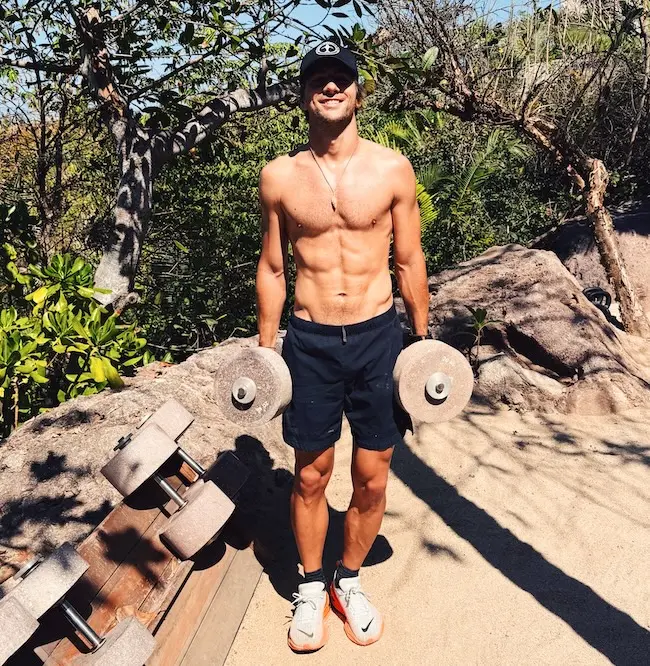After 20 years in professional endurance sports (as a pro athlete & coach), I’ve come to deeply appreciate the simplicity behind physically healthy. Achieving optimal health and athletic performance doesn’t require complicated strategies or expensive technology, it relies primarily on mastering the fundamentals: clean nutrition, appropriate daily movement, and dedicated recovery. This simplicity, however, can be deceptively difficult to implement consistently, even for seasoned athletes.
Why Simplicity Matters for Every Athlete
No matter your level, from beginner to professional, the principles remain consistent. What changes is your specific execution, tailored to your current fitness level, performance goals, and training volume. Over my coaching career, I’ve learned that most athletes, beginners and advanced alike, often neglect basic habits in pursuit of marginal gains. Mastering the basics first will deliver substantial progress, laying a strong foundation upon which performance can flourish.
Nutrition: The Foundation of Health and Performance
Proper nutrition is essential for enhancing performance, facilitating recovery, and sustaining overall health. Eating clean, unprocessed foods doesn’t have to be complicated, it simply involves choosing foods that are as close to their natural state as possible:
- Understanding Unprocessed Foods:
- Fresh fruits and vegetables rather than juices or sugary snacks.
- Lean meats, fish, eggs, beans, and legumes instead of processed meats or convenience foods.
- Whole grains such as oats, quinoa, or brown rice instead of refined, processed grains.
- Healthy fats from sources like nuts, seeds, olive oil, and avocados rather than processed oils or margarine.
Consistently choosing these foods boosts your energy, enhances muscle repair, stabilizes blood sugar, and significantly improves endurance and overall physical appearance.
Movement: Optimizing Your Training for Your Level
Your movement requirements should match your experience and ambitions. Understanding your current capabilities helps you determine the appropriate volume and intensity of your training:
Beginner Level:
- Commit to at least 30 minutes of daily movement. Suitable if you’re new to training or recovering from inactivity.
Intermediate Level:
- Maintain daily movement while adding structured aerobic sessions (2-3 weekly, about 120 minutes total) and at least 20 minutes of higher-intensity anaerobic training (intervals, hill repeats).
- Include 2-3 weekly strength training sessions to prevent injury and build muscular endurance.
Advanced Level:
- Daily movement remains essential, but structured cardiovascular sessions should exceed 120 minutes weekly. Combine aerobic endurance with strategic anaerobic training.
- Commit to a minimum of three resistance-training sessions weekly, emphasizing compound exercises and functional movements for optimal performance.
For advanced athletes especially, increased movement is critical for performance gains. However, it’s crucial to balance quantity with quality and sufficient recovery to prevent overtraining.
Recovery: Your Secret Weapon
Regardless of your level, recovery often dictates your rate of improvement. Prioritize these recovery basics consistently:
- Sleep: 7-8 hours nightly, ideally in a consistent sleep window, cool and dark environment.
- Routine: Establish consistent routines around sleep and wake times to regulate your circadian rhythm.
- Additional methods: Consider recovery-enhancing practices like sauna, cold therapy, meditation, or focused breathing exercises, particularly beneficial for high-performing athletes managing greater training stress.
Your Growth Path: Progress Over Time
Rather than “levels” of a challenge, think of your journey as evolving over time, systematically refining your habits to match your advancing abilities and goals:
- Early Development: Establish simple, consistent habits. Daily activity, clean eating most days, reliable sleep patterns.
- Intermediate Advancement: Refine consistency, introduce structured training and targeted nutrition strategies like increased protein intake and hydration awareness.
- Advanced Mastery: Integrate comprehensive training plans, detailed nutritional strategies including macronutrient management, and optimized recovery routines involving multiple therapeutic approaches.
Implementing Consistency: Practical Tips
- Prioritize Consistency: Habits compound over time. Steady, regular actions outperform inconsistent, intensive bursts.
- Customize Your Training: Match intensity and volume to your current fitness level and long-term performance goals, scaling progressively.
- Preparation Matters: Meal prep and planning ahead reduces decision fatigue and ensures nutritional consistency.
- Tracking Progress: Maintain simple, clear records of your training, nutrition, and recovery to stay accountable and aware of your trajectory.
From years of navigating both overtraining and under training, injury, and optimal performance, the most profound lesson remains this: consistent simplicity wins. Whether you’re just starting or aiming for peak performance, mastery of these basic elements ensures lasting physical wealth, robust health, and sustained athletic success.
For tips on how to implement this into your life: www.konaendurance.com
Flo

